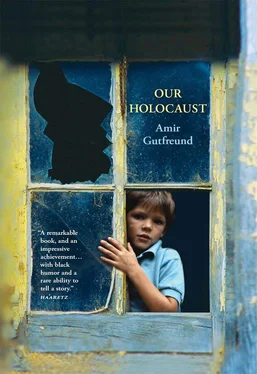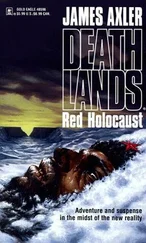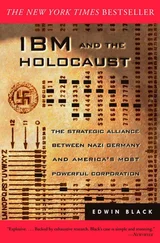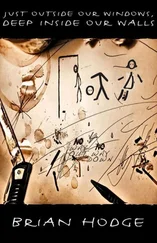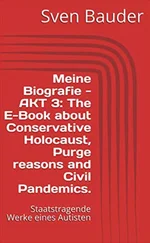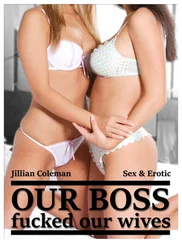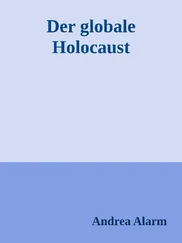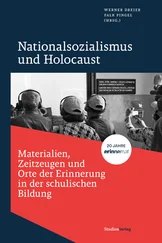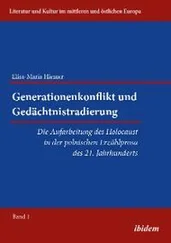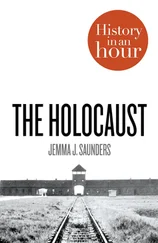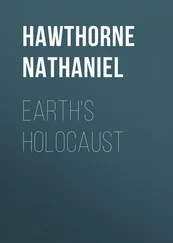Amir Gutfreund
Our Holocaust
Grandpa used to say, “People have to die of something,” and refused to donate to the war against cancer, the war against traffic accidents, or any other war. To avoid being considered stingy, he would occasionally burst into exemplary displays of tremendous generosity. He put on these shows with such proficiency that if not for us, his relatives, no one would have known the simple truth: he was a miser.
In his home, parsimony was the law of the land. He zealously collected empty bottles for their deposits, and when one of them broke he glued it back together with great artistry. Like a cuckoo, he tossed his shirts into other people’s laundry hampers, staging stains when necessary. A wonderful ability to catch colds in tandem with us enabled him to use our cough syrup and conserve his own. He would declare the colds over prematurely, proclaiming, “We’re better now!” and stockpile the remaining antibiotics. A bottle of liquid soap stood in his bathroom, and whenever the soap level dropped below a finger’s width he watered it down in an endless process that ultimately produced a bottle of water convinced it was soap. But his most wonderful ruse involved a magical power over tea bags. Each bag, even upon its tenth descent into boiling water, yielded something of itself — the merest vapor of tea, just verging on physically tangible material. The hoisting of the bag out of the water was accompanied by an expertly suspicious look at the bag hanging off the teaspoon by its string. Based on signs perceptible only to himself, he would estimate the bag’s vitality and decree its fate. Selektion , he called this ceremony when he wanted to be cruel to Grandpa Yosef. We suspected that even when the bags were exhausted he did not throw them away, but rather hoarded them in a secret location so that he could one day make them into a new mattress. We spent our childhood hunting for them, but even in our nosiest searches, when we exposed his letters to Joyce the dancer and his debt to the late Jew Finkelstein, we never found a single tea bag.
We were happy, at times, to remind ourselves that he wasn’t even our real grandfather.
We called him Grandpa — Grandpa Lolek — due to our family’s Law of Compression, a wonderful invention of our parents, the first generation of the Holocaust. Lacking brothers, uncles, fathers and mothers, they had done away with the requirement for precision. Anyone belonging to our parents’ generation was simply called “Uncle.” Their offspring were our cousins. Not that everyone was up for grabs. There were certainly rules. There had to be a corresponding sense of closeness among all the generations, so that the stitches holding us all together could heal and all individuals could find their relatives. A fond relationship among the parents’ generation meant that we could acquire their offspring as our cousins. Introvert “uncles” who tended not to take an interest in family affairs denied us entire clusters of willing cousins. Denied. End of story. The Law of Compression left no room for compromise.
Our greatest need was for grandparents, and so we ploughed our way through the restrictions and gathered as many of them as we could. I never knew my father’s father, Zev-Wolf. (In Dad’s photo album, I was drawn to a small picture of his grave.) We chose his cousins, Grandpa Lolek and Grandpa Hainek, to be our grandfathers. On Mom’s side we devised a similar ploy. Her father, sick Grandpa Shalom — who had yet to emerge from the Holocaust — was locked in the depths of a terminal illness brought on by Gestapo tortures, and so we annexed a distant relative of his as an official grandfather, Grandpa Menashe. At other opportunities we acquired Grandpa Ernst, Grandma Eva and Grandpa Weil.
How pitifully small was my real family, the one we covered up with camouflage relatives:
Grandpa Shalom, 1912–1980.
One aunt.
Her son, one real cousin.
And yes, there was actually another uncle, my mother’s half-brother.
“You don’t need a psychologist to understand that,” Effi responded when I told her once how I yearn to sleep with Anat every time we come home from one of her family weddings. Still in the car, both tired, I reach out to unbutton her dress and she barely has time to take her shoes off. From the back seat come the grumblings of Yariv, our five-year-old prince.
Grandpa Lolek, the tea artiste, was not the first of the grandpas. We got hold of him fairly late in the day. But he was a powerful axis in our lives, a figure who showered sparks onto our daily routines. He usually burst into our world in his 1970 Vauxhall, a moribund chassis of protestations upon which only he could impose life. Always wearing a tie, always smoking and dressed in colorful grandeur, he would emerge from the Vauxhall as if he were Kaiser Franz Josef out to wave at the masses from his balcony. Within minutes he would be sitting at the table drinking tea, eating whatever cake he was served, and smoking a cigarette.
Grandpa Lolek, the clear anomaly in our environment, was not a Holocaust survivor at all. World War II had caught him serving in the Polish cavalry, one of those wretched madmen who stormed German tanks yelling “Hurrah!” and waving swords. When his unit fell apart, Grandpa Lolek fled to Russia, where he joined the volunteer army of the Polish General Anders. With Anders, he set off on a voyage through Persia and Palestine to England, to reenter the war. Anders’ soldiers, with Grandpa Lolek among them, were thrown into some of the toughest battles and suffered the most terrible losses. These dime-a-dozen soldiers who were sent into battle every time a general in some war-room mumbled “let’s give them a try,” sustained heavy losses that filtered and distilled them until all that remained were Grandpa-Lolek-types, people coated with a layer of pure luck, fearless in the face of their old friend Death. They faced it every day, watched it go about its business, and grew accustomed to acknowledging it with a polite nod or a tip of the hat. They did not meddle in Death’s business, nor Death in theirs.
When World War II was over, the members of Anders’ Army, the remnants of the remnants, were rewarded for their service with British citizenship. But Grandpa Lolek was in love with an American dancer from Kentucky by the name of Joyce, and besides which, he needed to return to Poland to find out what remained of his family. Joyce was lost on the way, abdicating her chance to become Grandma Joyce (to be precise, she replaced Grandpa Lolek with a Viennese pianist). Lolek’s family had perished in the gas chambers. Only his younger brother Hainek remained, and together they immigrated to Palestine, where Lolek renewed his war against all the wretches who lamented their fates, whispering tales of Auschwitz and Buchenwald.
Grandpa Lolek would rebuke the survivors. “You had terrible Selektion ? One out of three, they took from you? Ten hours, naked in snow in Appellplatz ? Well, what coddling! With us, against the Germans at Monte Cassino, if only it was being one out of three! Two nights and two days, person that rests a little, they die. Come on, let’s move, no rest. Well, such trouble for you…”
His Hebrew was a tale of one-thousand Hebraic mistakes, an octagon of errors rolling through almost every sentence. He used to raise his glass and proclaim, “Life is good, Jews!” A bit of an anti-Semite. Drank a lot. Smoked. Always upright with a straight spine, despite his backache.
He owned a piece of land near Gedera, which he had been led to understand by certain-officials-in-the-right-places would soon be rezoned for construction. From time to time, over the course of thirty years, he went off to examine his treasure, which was agricultural for the time being, covered with heads of lettuce and strawberries like baby teeth, soon to be shed to make way for the main event. The officials, over the course of thirty years, were replaced, but Grandpa Lolek did not lose faith. He had complete confidence in the reliability of corruption and refused to sell his land to some bothersome farmer from Moshav Kidron. The farmer made repeated offers, all rejected by Grandpa Lolek.
Читать дальше
